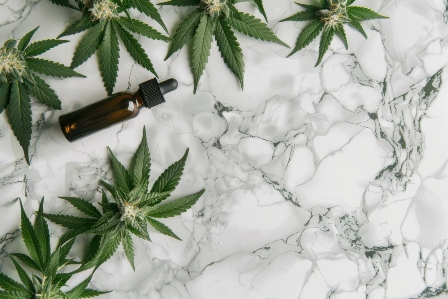The bile duct system plays a crucial role in digestion and detoxification, and emerging research suggests that cannabidiol (CBD) may offer significant benefits for biliary health. As interest in natural approaches to liver and digestive wellness grows, understanding the relationship between CBD and bile duct function becomes increasingly important.
Key Insight: CBD interacts with the body’s endocannabinoid system, which regulates various physiological processes including bile production and flow. Preliminary studies indicate CBD may help maintain bile duct health through its anti-inflammatory and regulatory effects.
Understanding the Bile Duct System
The biliary system consists of a network of ducts that transport bile from the liver to the gallbladder and small intestine. Bile is essential for:
- Digestion and absorption of fats and fat-soluble vitamins
- Elimination of waste products like bilirubin and excess cholesterol
- Maintaining proper gut microbiome balance
- Detoxification processes in the liver
Common Bile Duct Disorders
Several conditions can affect bile duct health, including:
| Condition | Description | Potential Symptoms |
|---|---|---|
| Cholangitis | Inflammation of the bile ducts | Pain, fever, jaundice |
| Cholecystitis | Gallbladder inflammation often related to bile duct blockage | Upper right abdominal pain, nausea |
| Primary Biliary Cholangitis (PBC) | Autoimmune disorder destroying small bile ducts | Fatigue, itching, dry eyes/mouth |
| Bile Duct Obstruction | Blockage preventing bile flow | Jaundice, dark urine, pale stools |
How CBD May Support Bile Duct Health
Research into CBD’s effects on the biliary system is still emerging, but several mechanisms suggest potential benefits:
1. Anti-Inflammatory Properties
Chronic inflammation contributes to many bile duct disorders. CBD has demonstrated potent anti-inflammatory effects through its interaction with CB2 receptors in the endocannabinoid system, potentially reducing inflammation in the biliary tract.
2. Modulation of Bile Flow
Studies suggest cannabinoids may influence bile secretion and flow. CBD appears to help regulate biliary pressure, which could prevent complications from bile duct obstruction or strictures.
3. Antioxidant Protection
Oxidative stress damages bile duct epithelial cells. CBD’s powerful antioxidant properties may protect these delicate tissues from free radical damage.
4. Pain Management
For conditions causing biliary pain (like cholangitis), CBD may help manage discomfort through its analgesic effects without the liver toxicity risks of some conventional pain medications.
Important Note: While preliminary research is promising, CBD should not replace conventional treatments for serious bile duct conditions. Always consult with a healthcare provider before using CBD, especially if you have liver or gallbladder issues.
Scientific Evidence: CBD and Biliary Health
Current research on CBD specifically for bile duct health is limited but growing:
- A 2017 study in Clinical Science found cannabinoids helped reduce cholangiocyte (bile duct cell) proliferation in models of cholestatic liver disease
- Research published in PLoS One (2015) showed CBD reduced liver inflammation and fibrosis in animal models of biliary obstruction
- A 2020 review in Frontiers in Pharmacology highlighted CBD’s potential to modulate bile acid synthesis and transport
Using CBD for Bile Duct Support
If considering CBD for biliary health, keep these recommendations in mind:
Dosage Considerations
Start with low doses (10-20mg daily) and gradually increase as needed. Those with liver concerns should be especially cautious with dosage.
Delivery Methods
Sublingual oils allow for precise dosing and bypass the digestive system. Topicals may help with localized abdominal discomfort.
Quality Matters
Choose full-spectrum or broad-spectrum CBD products from reputable sources that provide third-party lab testing.
Potential Risks and Considerations
While generally well-tolerated, CBD may:
- Interact with medications metabolized by the liver (like some bile acid sequestrants)
- Cause mild digestive side effects in some individuals
- Require dosage adjustments for those with advanced liver disease
Frequently Asked Questions
While CBD won’t dissolve gallstones, it may help manage associated inflammation and discomfort. Some research suggests cannabinoids might influence cholesterol metabolism, which could theoretically affect gallstone formation, but more studies are needed.
Preliminary research suggests CBD might offer some benefits for PBC due to its anti-inflammatory and antifibrotic properties. However, because PBC is a serious autoimmune condition, any CBD use should be carefully monitored by a hepatologist or gastroenterologist familiar with both PBC and cannabinoid therapeutics.
Current evidence suggests CBD may help regulate bile production rather than simply increasing or decreasing it. The endocannabinoid system appears to play a modulatory role in biliary function, helping maintain homeostasis. Some studies indicate CBD might reduce excessive bile production in cholestatic conditions while supporting normal flow in healthy systems.
While some laboratory studies have shown anti-cancer effects of cannabinoids in various cell lines, there is currently insufficient evidence to recommend CBD as a treatment for bile duct cancer (cholangiocarcinoma). Some patients use CBD alongside conventional treatments for symptom management, but this should only be done under medical supervision.





